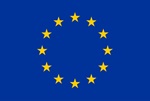Today, the SMILE project funded by the European Union’s Horizon 2020 research and innovation programme under Grant Agreement 731249 is going to be completed after more than four years.
This research project has been successfully carried out by a Project Consortium coordinated by RINA and constituted by 19 partners from six European countries.
The project tested innovative strategies to boost clean energy transition on islands by targeting the electric distribution grids to enable demand response schemes, smart grid functionalities, storage and energy system integration.
The overall aim of SMILE project was to contribute to a modernization of smart grids in islands context through the demonstration of technological and non-technological solutions adapted to local circumstances.
These solutions varied from the integration of different battery technologies (Phase change material based heat batteries, lithium base Battery Energy Storage Systems), power to heat, electric vehicles and boats, up to an aggregator approach to demand side management and predictive algorithms.
The SMILE solutions were supported by hardware and software modules to make the distribution in an electricity grid more agile and competitive thanks to the fusion of actual real-time data with predicted ones from simulations.
The SMILE innovations have been tested in three large-scale pilot projects in three islands from different regions of Europe with similar topographic characteristics but different policies, regulations and energy markets. The demonstrators were Orkneys (UK), Samsø (DK) and Madeira (PT) islands and their role has been fundamental to test the operation of the distribution grid under stable and secure conditions to implement solutions for demand response, intelligent control and automation of distribution networks.
After the validation of the solutions in the three SMILE islands, the focus in the last part of the project was on the replications studies for investigating the applicability of SMILE in some selected Greek islands. Actually, one of the scopes of the project was to test the solutions while establishing mutual learning processes and providing best practice guidance for replication in other regions.
Indeed, the project methods and results can be applied not only for island locations; the tested technologies and the applications within the SMILE project can be of inspiration to be transferred in different geographical situations.
1) Rina Consulting S.p.A. (Project Coordinator); 2) Aalborg University; 3) ACIF – Camara de Comercio e Industria da Madeira; 4) PRSMA - Bright Curiosity, LDA; 5) Community Energy Scotland; 6) DAFNI - Network of Sustainable Greek Islands; 7) EEM - Electricidade da Madeira; 8) Centre for Research and Technology Hellas; 9) Lithium Balance A/S; 10) MITI – Madeira Interactive Technologies Institute; 11) University of Groningen; 12) Route Monkey LTD; 13) Samsø Energy Academy; 14) Samsø Municipality; 15) New Energy Coalition; 16) Sunamp Ltd; 17) Danish Technological Institute; 18) Ovo Energy.

This article is taken from SMILE H2020 Project Press Release.
SMILE has received funding from the European Union’s Horizon 2020 research and innovation programme under grant agreement n° 731249.